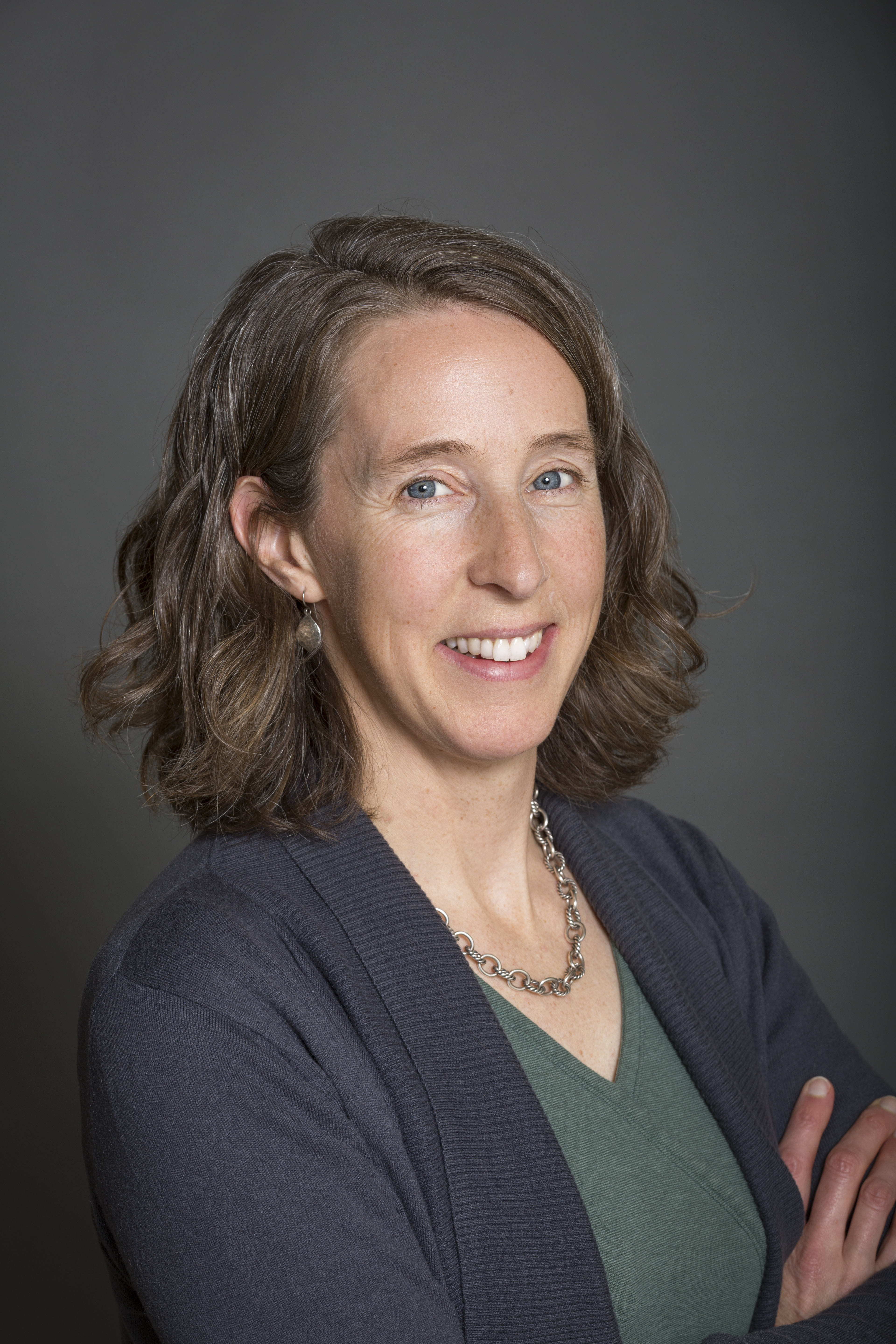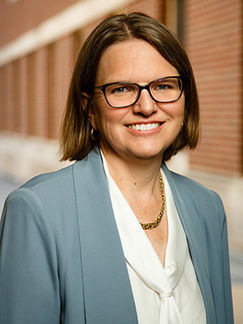Speaker Bios

Currently a special advisor to the MD Anderson Mano a Mano Mexican American Cohort Study, Dr. Shine Chang served as its PI from 2018 to 2020. Started in 2001, the Mano a Mano Cohort Study is a prospective cohort of >26K individual residents born in the United States and in Mexico recruited from the Houston metropolitan area. Participants provided extensive interview data and biological samples at baseline and are contacted annually for health status updates, with cancer diagnoses and vital status obtained annually from the Texas Cancer Registry, an official SEER registry as of May 2021. With >25 years as a cancer epidemiologist and prevention scientist, she is also a nationally recognized training program director and educator in cancer prevention research, with additional workforce development efforts in SGM cancer research, in cancer prevention training in international settings (Mexico, India), and in trainee scientific communication skill development, mentorship, imposter phenomenon, and other factors that influence recruitment and retention of a diverse scientific workforce.

Dr. Stephen Chanock is the Director of the NCI Division of Cancer Epidemiology and Genetics (DCEG). He is a leading expert in the discovery and characterization of cancer susceptibility regions in the human genome. He has received numerous awards for his scientific contributions to our understanding of common inherited genetic variants associated with cancer risk and outcomes. Dr. Chanock received his M.D. from Harvard Medical School and completed clinical training in pediatrics, pediatric infectious diseases, and pediatric hematology/oncology and research training in molecular genetics at Boston Children’s Hospital and the Dana-Farber Cancer Institute, Boston. From 2001-2007, he was a tenured investigator in the Genomic Variation Section of the Pediatric Oncology Branch in the NCI Center for Cancer Research. He also served as co-chair of NCI's Genetics, Genomics and Proteomics Faculty for five years. In 2001, he was appointed as Chief of the Cancer Genomics Research Laboratory (formerly Core Genotyping Facility), and in 2007 as Chief of the Laboratory of Translational Genomics, both within DCEG. From 2012 to 2013, he also served as Acting Co-Director of the NCI Center for Cancer Genomics. Dr. Chanock was appointed Director of DCEG in August 2013. Since 1995, Dr. Chanock has served as the Medical Director for Camp Fantastic, a week-long recreational camp for pediatric cancer patients, which is a joint venture of the NCI and Special Love, Inc.

Castine Clerkin is the Program Manager for NAACCR’s Virtual Pooled Registry Cancer Linkage System. In this role she oversees all aspects of the project, from pilot linkages to workgroup calls to system development, testing, and implementation. Prior to joining NAACCR, Castine was a Program Consultant with CDC’s National Program of Cancer Registries for over 7 years and led various special projects, including early case capture of childhood cancer cases. Castine began her career in cancer surveillance in 2001, working as the epidemiologist and data manager for the Maine Cancer Registry.

Robert Croyle, PhD, was appointed director of the Division of Cancer Control and Population Sciences (DCCPS), National Cancer Institute (NCI), in July 2003. In this role, he is responsible for overseeing a research portfolio and operating budget of more than a half billion dollars and serves on NCI’s Scientific Program Leaders Committee. As a division, DCCPS covers a wide range of scientific domains and disciplines, including epidemiology, behavioral science, surveillance and statistics, cancer survivorship, and health services and outcomes research. He previously served as the division’s associate director for the Behavioral Research Program, leading its development and expansion. Before coming to NCI in 1998, he was professor of psychology and a member of the Huntsman Cancer Institute at the University of Utah in Salt Lake City. Dr. Croyle's research has examined how individuals process, evaluate, and respond to cancer risk information, including tests for inherited mutations in BRCA1 and BRCA2. His research has been published widely in professional journals in behavioral science, public health, and cancer, and he has edited two volumes: Mental Representation inHealth and Illness (1991) and Psychosocial Effects of Screening for Disease Prevention and Detection (1995). He is co-editor of the Handbook of Cancer Control and Behavioral Science (2009) and co-author of Making Data Talk: Communicating Data to the Public, Policy Makers and the Press (2009). He is also co-editor of Strategies for Team Science Success (2019).
Robert Eiss serves as senior global health adviser to the Director of the National Institutes of Health and Fogarty International Center. At NIH, Mr. Eiss assumed lead responsibility for the Fogarty International Center’s first long-range plan, which reoriented its programs to address infectious and non-communicable disease research and training needs of low-and middle-income countries. Mr. Eiss has held executive management posts at the White House Office of National Drug Control Policy (ONDCP) and at an international NGO established by the Rockefeller Foundation to improve access to innovative medicines. At ONDCP, he served as director of planning and budget, involving budgetary oversight of national drug control agencies, establishment of a system of performance measures to monitor program effectiveness, and the management of a research portfolio on illicit drug consumption and consequences. As CEO of an international NGO, he promoted innovative and strategic management of intellectual property to speed the development of medical products that reduce global health disparities. He holds degrees from the University of Maryland at College Park and Oxford University

Joanne Elena, Ph.D., M.P.H., is an Epidemiologist and Program Director in the Clinical and Translational Epidemiology Branch of the Epidemiology and Genomics Research Program, Division of Cancer Control and Population Sciences (DCCPS) at the National Cancer Institute (NCI). She is responsible for developing, managing, and promoting a research portfolio of grants focused on diet and lifestyle factors that influence cancer progression, subsequent primary cancers, recurrence, and survival. She is also involved in optimizing the use and design of cohort studies, incorporating new technologies to assess exposures and outcomes, maximizing the use of existing data, and manages several funding announcements that support infrastructure needs for large cohort studies. She serves as the Scientific Director for NCI’s Cohort Consortium and is EGRP’s co-coordinator for cohort activities.
Dr. Elena completed her Ph.D. in nutritional epidemiology at the University of North Carolina at Chapel Hill and her M.P.H. at the Johns Hopkins Bloomberg School of Public Health.

Dr. Heather Eliassen is Professor of Nutrition and Epidemiology at the Harvard T.H. Chan School of Public Health and Associate Professor of Medicine and Epidemiology at Harvard Medical School. She is Associate Director of the Channing Division of Network Medicine and Director of the Chronic Disease Epidemiology Unit. Dr. Eliassen is co-PI of two ongoing prospective cohort studies, the Nurses’ Health Study (NHS), founded in 1976 with 121,700 women, and the Nurses’ Health Study II (NHSII), founded in 1989 with 116,400 women. She also is Director of the BWH/Harvard Cohort Biorepository, which houses more than three million biospecimens from 200,000 cohort participants, and Co-Leader of the Cancer Epidemiology Program at the Dana Farber/Harvard Cancer Center. Her research focuses on the etiology of breast cancer, examining associations between lifestyle factors, biomarkers of lifestyle and hormones, and breast cancer risk and progression. She investigates ways in which women may alter their lifestyle to reduce breast cancer risk and improve survival after diagnosis. Dr. Eliassen is actively involved in the teaching and mentoring of graduate students at the Harvard T.H. Chan School of Public Health, and mentoring of postdoctoral fellows and junior faculty members at Harvard and Brigham and Women’s Hospital.
Dr. Jane Figueiredo is the Director of Community and Population Health Research and Professor of Medicine at the Samuel Oschin Comprehensive Cancer Institute at Cedars-Sinai Medical Center. Her research program applies a multi-disciplinary framework to understand the intersections between the biological, environmental, and behavioral/lifestyle aspects of cancer control, treatment response, survivorship and disparities. She is currently a MPI of two NCI-funded cancer epidemiology cohorts in colorectal cancer (U01CA206110, U01CA167551) and the NCI-funded Serological Sciences Network (SeroNet)-Coronavirus Risk Associations and Longitudinal Evaluation study (U54CA260591). Dr. Figueiredo serves as co-chair of the Epidemiology and Population Studies Operations Group for SeroNet.

Dr. Mia Gaudet is the Chief Scientist for the Connect for Cancer Prevention Cohort study in the DCEG Trans-Divisional Research Program. In this role, Dr. Gaudet oversees cohort management and activities as well as serves as the study’s chair in the Executive and DCEG Steering Committees. Previously, Dr. Gaudet was a Scientific Director of Epidemiology Research at the American Cancer Society (ACS). In the ACS Cancer Prevention Studies, she contributed to cohort activities, including participant recruitment and retention, questionnaire development, and resource utilization. In addition, she initiated and oversaw the collection and characterization of breast and ovarian tissue from women diagnosed with these cancers in these cohorts. She conducted research to clarify and identify genetic and non-genetic risk factors for subtypes of breast cancer with an emphasis on more fatal subtypes in the Cancer Prevention Study cohorts and other collaborative efforts. In addition, Dr. Gaudet has held academic positions at Rollins School of Public Health at Emory University, Memorial Sloan-Kettering, and Albert Einstein College of Medicine. She is the author of nearly 200 scientific articles and has co-authored “Genetic Epidemiology of Breast Cancer” in Women & Health (2013) and “Breast Cancer Epidemiology” in the 4th edition of Cancer Epidemiology and Prevention (2017), a premier reference text in cancer epidemiology. Dr. Gaudet obtained her doctoral degree in epidemiology at the University of North Carolina at Chapel Hill. She completed a postdoctoral fellowship in DCEG.

Dr Marc Gunter is Head of the Nutrition and Metabolism Branch at the International Agency for Research on Cancer (IARC), the specialized cancer research agency of the World Health Organization. Dr Gunter holds a Ph.D. in molecular epidemiology from the University of Cambridge and a degree in biochemistry from the University of Oxford. He completed his postdoctoral training at the U.S National Cancer Institute and has held faculty positions at Albert Einstein College of Medicine in New York and Imperial College London. Dr Gunter’s research focuses on the role of nutrition, diabetes, and obesity in the natural history of cancer with an emphasis on metabolic dysfunction and in particular the insulin/IGF/mTOR pathway. He is principal investigator of a number of studies applying high dimensional metabolic profiling within the framework of large prospective and clinical cohorts, as well as intervention studies, to identify novel biochemical pathways involved in cancer development and prognosis. He is currently co-PI of the European Prospective Investigation into Cancer (EPIC) – a multinational cohort of over 520,000 Europeans and since 2019 is a steering committee member of the NCI Cohort Consortium which includes more than 50 prospective cohort studies worldwide. He has published more than 450 scientific articles and book chapters and serves on numerous committees and panels for international organizations such as the World Cancer Research Fund.

Dr. Nonye Harvey is a Health Science Policy Analyst in the NIH Genomic Data Sharing Implementation Office, NIH Office of Extramural Research/NIH Office of the Director. She works across several trans-NIH groups and committees on central coordination, harmonization and standardization of systems and processes for optimal implementation of NIH data sharing policies across NIH Institutes and Centers, and the broader scientific community. Previously, Dr. Harvey held various positions and leadership roles throughout her 15-year tenure at NCI in EGRP and the Office of Cancer Survivorship.
Dr. Harvey was the Executive Director of the NCI Cohort Consortium from 2006-2020 and co-authored several peer-reviewed publications on pooling studies, and more recently a CEBP commentary on the Consortium’s strategic planning. She was also involved in the development and management of other cancer epidemiology cohort research and consortia, including the Breast Cancer and Environment Research Program initiative. Her expertise and interests span data sharing in biomedical research, policy, evaluation, scientific initiative development, strategic planning, cancer epidemiology cohort research, and global health. Prior to joining NCI, Dr. Harvey served as the Program Manager of the Mid-Atlantic Region Pediatric Environmental Health Specialty Unit at the George Washington University Milken Institute School of Public Health where she worked on children’s environmental health research and provider training programs. She earned her M.P.H. in maternal and child health and international health from the GWU Milken Institute School of Public Health and her Dr.P.H. in leadership in public health from the University of Illinois at Chicago School of Public Health.
Dr. Kathy Helzlsouer serves as Associate Director of the Epidemiology and Genomics Research Program and chief medical officer for the National Cancer Institute's (NCI) Division of Cancer Control and Population Sciences. Dr. Helzlsouer is board certified in internal medicine and medical oncology. She earned her medical degree from the University of Pittsburgh and has received postgraduate education and training in internal medicine, oncology, and epidemiology at the University of Virginia and the Johns Hopkins University. Prior to joining NCI, Dr. Helzlsouer was a professor in the Department of Epidemiology at the Johns Hopkins University Bloomberg School of Public Health and established the Prevention and Research Center at an academic community hospital. Dr. Helzlsouer’s research experience and clinical activities include cancer epidemiology and prevention, cancer risk assessment, cancer survivorship, cohort studies and clinical trials.

I am a medically trained epidemiologist and public health physician based at Cancer Council Victoria and affiliated to the University of Melbourne. Born in Sri Lanka, I migrated to Australia in 2007 with my young family. I completed my PhD in Epidemiology at the University of Melbourne in 2014, and my doctoral work on the association between lifetime alcohol intake and risk of cancer contributed the scientific evidence for the Drink Less Live More campaign of the Cancer Council Victoria. I have a significant track record as a transitioning early-to-mid-career researcher and emerging leader in cancer epidemiology, with strong methodological expertise, extensive knowledge of biological processes underlying carcinogenesis, and experience in the design and analysis of studies examining the etiology of cancer, cancer prevention and health management. Most of my research has been set within a collaborative framework of large cohort studies and international consortia. I have been an Investigator for the Melbourne Collaborative Cohort Study since 2015 examining risk factors for cancer and survival following cancer, with emphasis on alcohol consumption, an area of research that I continue to lead. Currently, I lead a National Cancer Institute Cohort Consortium pooling project that aims to examine risk factors for stomach cancer, a project funded by the National Health and Medical Research Council (NHMRC) of Australia through a 5-year grant. I am also an Investigator on a NHMRC project grant that utilizes the Cohort Consortium for a pooled analysis to assess breast cancer risk factors according to underlying genetic susceptibility.

Larry Kushi is a cancer and nutritional epidemiologist with the Division of Research, Kaiser Permanente Northern California (KPNC). He is currently contact Multiple Principal Investigator (MPI) of the Pathways Study, a prospective cohort study of women diagnosed with breast cancer in KPNC, a study supported through the NCI's cancer epidemiology cohort infrastructure program. Among other projects, he is also contact MPI of a P01 examining clinical care gaps, survivorship, and late effects in adolescent and young adult cancers, and MPI of a project examining racial disparities in ovarian cancer treatment and outcomes. He previously led the NCI-supported Cancer Research Network that provided infrastructure to support collaborations across a consortium of integrated health care systems, including leveraging use of electronic health record data for research purposes. Building upon this experience, he co-leads one of the epidemiology studies of the NCI's SeroNet initiative. This project is focused on objectives related to seroprevalence, serosurveillance, and outcomes such as reinfection rates in the context of the SARS-CoV-2 pandemic, and is led by PI Jacek Skarbinski, an infectious disease physician and epidemiologist at KPNC. It includes both active data collection and SARS-CoV-2 serology testing in several thousand KPNC members, and data-only follow-up within the 4.5 million members of KPNC. Larry is a graduate of Amherst College and the Harvard School of Public Health, and has held research and faculty positions at the Fred Hutchinson Cancer Research Center, University of Minnesota, and Columbia University.

Jim is one of the PIs, along with Dr. Elena Martinez, of the California Teachers Study (CTS). His current work integrates epidemiology, informatics, and analytics. His research began at the NCI, working on intramural cohorts. In 2009, he moved to City of Hope and joined the CTS team. He led an innovative biobanking project that utilized cloud & mobile computing to increase quality & output. He then guided the CTS team as it revamped its data management, collection, analysis, and sharing infrastructure. The CTS is one of the first cohorts to deploy the NCI’s Cancer Research Data Commons Framework for observational research. During his time as a PI of the CTS, CTS data have become universally accessible through a secure researcher platform that includes self-service data selection, open-source & commercial analysis software, and extensive documentation & data visualizations. At City of Hope, Jim is a Professor & Director of the Division of Health Analytics in the Department of Computational and Quantitative Medicine. From 2015 to 2021, he served as a member of the NCI Board of Scientific Advisors. His spouse, Dr. Sophia Wang, is a distinguished cancer epidemiologist; they and their two children live in Los Angeles.

Prior to his role as the Chief Technology Officer for the All of Us Research Program, Chris worked as an HHS Entrepreneur on the launch of the Affordable Care Act and as the VP of Government Services for GetInsured. He was an Entrepreneur-in-Residence for Venrock, and started three companies. He had one IPO and co-invented seventeen patents.

Dr. Lauren McCullough received her PhD in Epidemiology from the University of North Carolina at Chapel Hill. She is an Assistant Professor in the Department of Epidemiology at Emory University's Rollins School of Public Health. Her research program is at the intersection of molecular and social epidemiology, where she interrogates biological drivers of obesity, the physical and social environments, and early-life exposures in tumor progression. Her research aims to improve breast cancer outcomes disparities by identifying targets for pharmacologic, behavioral, and policy intervention.

Dr. Merritt's research utilizes epidemiological studies to evaluate risk factors for women's cancers with a focus on gynecologic (ovarian and endometrial) cancers. Her goal is to develop better strategies for their prevention. She also hopes to improve outcomes for ovarian and endometrial cancer patients by identifying targets for pharmacologic and lifestyle interventions.
Dr. Merritt’s research program integrates molecular epidemiology, biomarkers for disease risk and progression and disparities research using data from several epidemiological cohort studies including the Multiethnic Cohort and through participation in the Ovarian Cancer Cohort Consortium (OC3). Her current work falls into three areas: (a) evaluating aspirin and non-aspirin NSAID use in relation to ovarian cancer survival in the OC3, (b) studying biological pathways to help understand risk factor-disease associations and (c) investigating racial/ethnic differences in risk factor associations for ovarian, endometrial and breast cancers.

Roger is an epidemiologist with expertise in international collaboration and the analysis of genetic and lifestyle data from observational studies. He joined Cancer Council Victoria in 2013 and was appointed the Cancer Epidemiology Division’s Head in 2017. He is Chief Investigator of the Melbourne Collaborative Cohort Study (Health 2020; https://academic.oup.com/ije/article/46/6/1757/3882696) and the Australian Breakthrough Cancer Study (https://www.abcstudy.com.au/). Roger’s work focuses on cancer epidemiology, including genetic and lifestyle-related risk factors, genetic and gene-environment interactions and DNA methylation. He currently holds a World Cancer Research Fund grant to investigate dietary and body size-related risk factors for bladder cancer (https://www.wcrf.org/researchwefund/do-diet-and-obesity-increase-the-risk-of-bladder-cancer/).

Dr. Serban Negoita, MD, DrPH, serves as Chief of the Data Quality, Analysis, and Interpretation Branch (DQAIB) with the Surveillance Research Program (SRP) of National Cancer Institute (NCI). In this position, he works with SEER registries, NCI experts, and the cancer surveillance community to enhance the quality of cancer surveillance data. As Branch Chief, he facilitates DQAIB’s mission to provide leadership in cancer data collection, improve the quality of cancer registration and enhance the release of SEER data products. As an expert in cancer registry operations and data quality assessments, Dr. Negoita helps develop procedures for the collection of novel cancer data sources. In addition, Dr Negoita’s research interests include descriptive statistics of clinical cancer outcomes, and more recently, the effect of COVID-19 pandemic on cancer statistics.
Dr. Negoita earned his MD from the University of Medicine and Pharmacy in Bucharest, Romania and his DrPH from the State University of New York. During his 25 years in cancer surveillance and public health research, Dr. Negoita served in various roles with the Carol Davila University of Medicine and Pharmacy, the United Nations Development Programe, Health Research Incorporated, and Westat. Inc. Dr. Negoita represented North American Association of Central Cancer Registries on the Commission on Cancer of the American College of Surgeons and was recently appointed to the Executive Committee of the American Joint Committee on Cancer. In addition, he is the current SEER Program representative to the International Association of Cancer Registries.

Hazel B. Nichols, PhD is an associate professor in the epidemiology department at the UNC Gillings School of Global Public Health. She is a member of the Cancer Epidemiology Program and the Director of Cancer Survivorship Research at the UNC Lineberger Comprehensive Cancer Center. Her research addresses the intersection of cancer and reproductive health across the lifespan, and health outcomes after endometrial cancer or among adolescent and young adults with cancer. Within the NCI Cohort Consortium, she is a founding member of the Premenopausal Breast Cancer Collaborative Working Group and currently co-leads the Survivorship/Second Cancers Working Group.

Erika Rees-Punia, MPH, Ph.D. is a principal scientist for the American Cancer Society and leads research on the promotion and benefits of physical activity in cancer survivors. Dr. Rees-Punia works with the Cancer Prevention Study-3 (CPS-3) and manages the CPS-3 Accelerometer Sub-Study, an ongoing project that involves collecting device-based physical activity data on 20,000 participants. Dr. Rees-Punia is also a part of the Cohort Consortium Associate Member Council leadership team and co-leads the Physical Activity Pooling Project.

Dr. Jeannette M. Schenk is a Senior Staff Scientist in the Cancer Prevention Program at the Fred Hutch Cancer Research Center (FHCRC). She received a B.S. in molecular biology from University of California San Diego, a M.S. in Clinical Nutrition from New York University and a Ph.D. in epidemiology from University of Washington. Dr. Schenk’s research is focused on the associations of diet, obesity, lifestyle and metabolic biomarkers with prostate cancer incidence and progression. She has extensive experience working with clinical and biologic data from large multi-center prostate cancer cohorts and serves as Co-Investigator on the Prostate Cancer Prevention Trial (PCPT), Selenium and Vitamin E Cancer Trial (SELECT) and the Prostate Cancer Active Surveillance Study (PASS) cohorts.

Dr. Xiao-Ou Shu is an Ingram Professor of Cancer Research, Professor in the Department of Medicine at the Vanderbilt University School of Medicine, co-leader for the Cancer Epidemiology Program, and Associate Director for Global Health at the Vanderbilt-Ingram Cancer Center. She has been consistently funded by US National Institute of Health since 1996, serving as the principal investigator for more than 22 major research grants and 3 training grants. Dr. Shu has over 35 years of experience in conducting large-scale epidemiological studies on cancer and other chronic diseases. She is the PI of the Shanghai Men’s Health Study and a leading investigator of the Shanghai Women’s Health Study, two population-based cohorts including over 130,000 participants. She is a founding member of several large epidemiological consortia, including the After Breast Cancer Pooling Project (ABCPP; N=18,000), the Asian Genetic Epidemiology Network for Obesity-Related Traits (AGEN-Obesity; N=134,500) and the Calcium and Lung Cancer Pooling Project (N=1,900,000), for which she is the lead investigator. Dr. Shu has more than 950 publications in peer-reviewed life science journals, with a H-index of 126. She was recognized by Thomson Reuters/Clarivate Analytics as a “Highly Cited Researcher” in 2015, 2016 and 2018. She was/am the PI for two NIH-funded training grants and the NCI funded P20 grant “Regional Center of Research Excellence in Cancer and Other Non-Communicable Disease Epidemiology and Prevention in Vietnam”. Dr. Shu currently serve on the Steering Committee of the Cancer Cohort Consortium and the Consortium of Metabolomics Studies, led by the NCI.

Dr. Julia Slutsman is a bioethicist and Director of the Genomic Data Sharing Policy Implementation Office in the Office of Extramural Research, NIH. Her work focusses on supporting activities necessary for effective implementation of NIH data sharing policies while maintaining research participant confidentiality and data privacy. Dr. Slutsman worked as the Director of Research Regulatory Affairs at Children’s National Medical Center and was an Assistant Professor of Pediatrics at the George Washington University. She has extensive expertise in implementing human subject protections, clinical research compliance and in developing policy for research oversight of pediatric and adult clinical research programs. Dr. Slutsman has held numerous positions within the National Institutes of Health. She worked as a bioethicist in the NIH Office of Human Subject Protections and in the Department of Bioethics. She served as the bioethicist for the National Children’s Study at the Eunice K. Shriver Institute of Child Health and Human Development. She has conducted and published empirical bioethics research in a number of areas. Her current research interests include informed consent and data sharing in research, ethical and policy implications of single IRB review of research, parental decision-making in research involving children and ethical issues related to the review and conduct of public health emergency research. Dr. Slutsman earned her Ph.D. from the Program in Law, Ethics and Health at the Johns Hopkins University Bloomberg School of Public Health. She completed a post-doctoral fellowship in the ethics of public health and cancer prevention at the National Cancer Institute.

Beth A. Virnig, PhD., MPH is a professor in the Division of Health Policy and Management at the University of Minnesota School of Public Health. She is an epidemiologist and an expert in the use and interpretation of Administrative data such as that from Medicare, Medicaid and All Payer Claims Databases (APCDs). She uses Medicare data alone and in combination with other data sources including cancer registry data, data from local and federal surveys and compiled geographical summaries. Her work addresses methodologies to effectively use administrative data alone or linked with information from other sources. These publications identify methods for effectively extending the value of Medicare data to understand healthcare use. These papers help support the increasingly large body of academic literature and policy analysis that uses Medicare and other administrative data sources for identifying health care use and outcomes. She is the PI of the CMS-funded Research Data Assistance Center (ResDAC) and the PI of an NCI contract to support the linked SEER-Medicare data. In both, she teaches courses to researchers and advises CMS and the NCI about how to use the data for population-based and programmatic purposes. Dr. Virnig’s applied work focuses on variability in care receipt of care and care outcomes. She has consistently found that local clinical practices are important predictors of clinical outcomes that are not explained by differences in disease severity or demographic characteristics. Her work provides evidence for a focus on facility-level decision-making as a strategy for quality improvement.

Jeremy L. Warner MD, MS, FAMIA, FASCO is an Associate Professor of Medicine and Biomedical Informatics at Vanderbilt University. He is board certified in Medical Oncology, Hematology, and Clinical Informatics; his clinical focus is malignant hematology. His primary research goal is to make sense of the structured and unstructured data present in electronic health records (EHRs) and clinical knowledge bases to directly improve clinical care for patients, with a focus on oncology. This includes high-dimensional data analysis and visualization, natural language processing of cancer-oriented narratives, and development/implementation of oncology-specific health IT standards. He is an associate editor of JCO Clinical Cancer Informatics and chapter co-editor of Cancer Informatics for the IMIA Yearbook. He is the co-founder of HemOnc.org LLC, deputy editor of HemOnc.org, and chief software engineer of the HemOnc ontology, a terminology focused on capturing all relevant knowledge pertinent to chemotherapy drugs and regimens. He is one of the co-founders of the COVID-19 and Cancer Consortium (CCC19), a member of the Steering Committee, and the Chair of the Informatics Committee. He built and maintains the CCC19 registry, which has over 10,000 reports on patients with cancer and COVID-19 and is the largest registry of its kind. He is the corresponding author on the first report from CCC19, published in the The Lancet, which was the largest series at that time, and established the major risk factors for poor outcomes in patients with cancer and COVID-19.

I am a Professor in the Epidemiology Program and serve as the Director of the Biostatistics Shared Resource for the University of Hawaii Cancer Center. I am a multiple Principal Investigator of the Multiethnic Cohort Study (MEC) and have served on the NCI Cancer Cohort Consortium for 4 years. The MEC was established in 1993-1996 to study lifestyle and genetic risk factors for cancer among the over 215,000 members in HI and CA from five ethnic groups. The MEC is built on the premise that comparisons of the risk factor associations for cancer between populations with varying disease rates will provide deeper insight into mechanisms of cancer development. Indeed, in the MEC, we have found differing associations for adiposity and breast cancer, with stronger associations for among Japanese and Native Hawaiian women and a null association for African American women, suggesting that fat distribution may be a factor. We confirmed that a prediction score for MRI-based visceral fat was more strongly associated breast cancer risk than BMI. One of my main research interests has been the study of measurement error in questionnaire and laboratory data, particularly related to diet and physical activity, and methods for best integrating data from different sources for error-prone variables. These issues are particularly pertinent when combining information across populations and data collection methods. The NCI cancer cohort consortium has been an important platform for advancing knowledge of cancer through combining data across populations in order to study weak associations and rarer cancers.